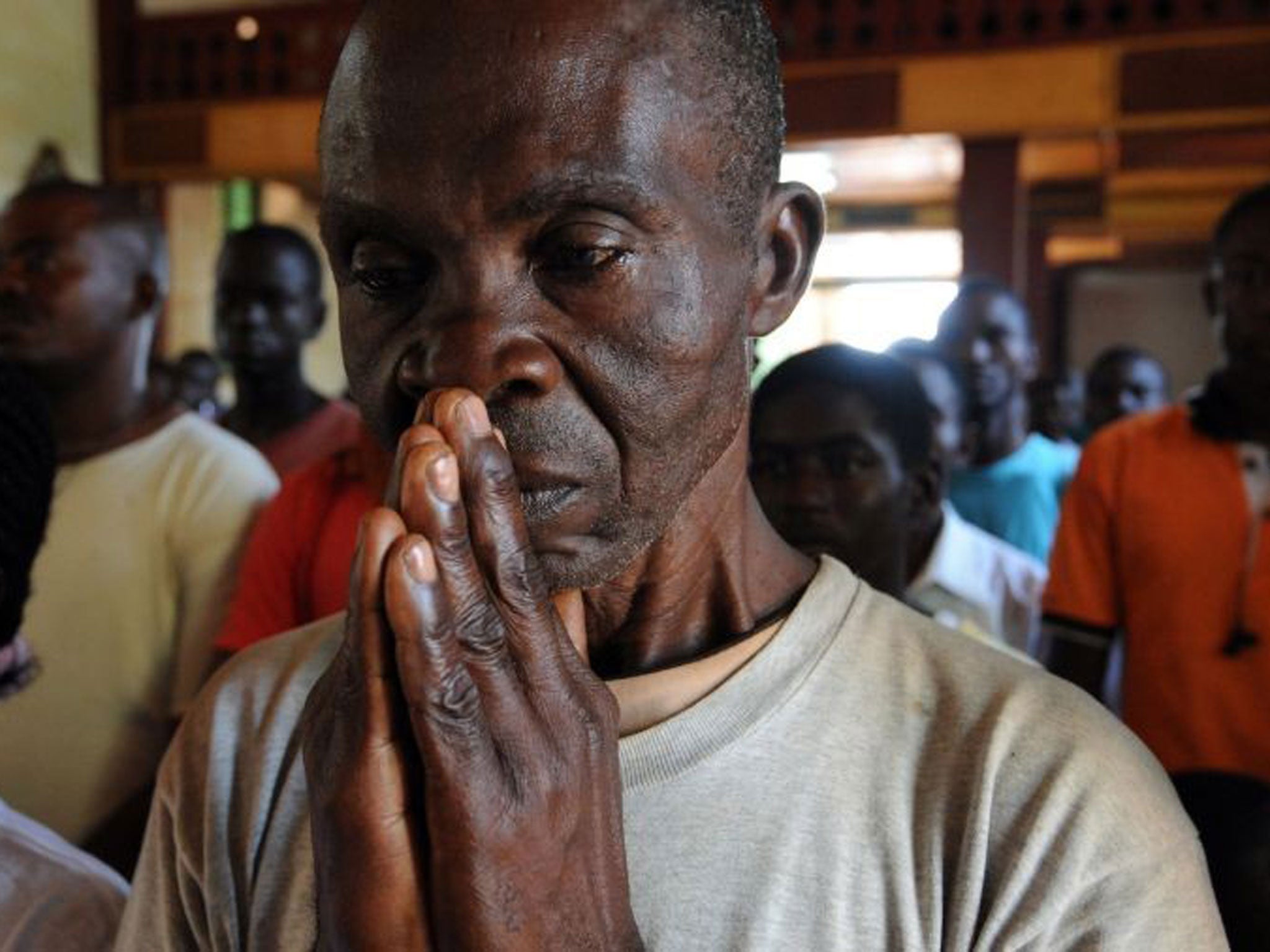Violence in the Central African Republic: French peacekeepers in Bangui as death toll rises
Despite the presence of the forces, clashes between rival militias were reported in Bossangoa, about 190 miles north of the capital

Your support helps us to tell the story
From reproductive rights to climate change to Big Tech, The Independent is on the ground when the story is developing. Whether it's investigating the financials of Elon Musk's pro-Trump PAC or producing our latest documentary, 'The A Word', which shines a light on the American women fighting for reproductive rights, we know how important it is to parse out the facts from the messaging.
At such a critical moment in US history, we need reporters on the ground. Your donation allows us to keep sending journalists to speak to both sides of the story.
The Independent is trusted by Americans across the entire political spectrum. And unlike many other quality news outlets, we choose not to lock Americans out of our reporting and analysis with paywalls. We believe quality journalism should be available to everyone, paid for by those who can afford it.
Your support makes all the difference.Residents in the Central African Republic's capital of Bangui tentatively emerged on to the streets from makeshift shelters yesterday, as the scale of the bitter sectarian violence became clearer.
The United Nations-backed French intervention in the Republic began on Friday after two days of increasing bloodshed. It involves 1,600 troops in patrols of the dilapidated, riverside capital, with jets overhead.
Despite the presence of the forces, clashes between rival militias were reported in Bossangoa, about 190 miles north of Bangui, where aid workers said 30 people were killed in the gunfire and explosions from rocket-propelled grenades yesterday.
More than 300 people are now thought to have died in the violence; that total is likely to increase as humanitarian workers discover the dead.
By Friday night, 281 bodies had been collected by the Red Cross from the streets of Bangui. Residents, many in tears and covering their noses to ward off the smell, gathered at the city morgue as the Red Cross brought in the bodies. Amongst them was a woman who gave her name only as Pauline. "My brother was killed but I cannot find his body here," she said.
The Republic's shaky interim authorities ordered all forces except foreign peace-keepers and the presidential guard off the capital's main roads, but residents claimed that violence continued in alleys and side streets.
A senior UN aid official told Reuters that peacekeepers must push into neighbourhoods where "senseless" Muslim-Christian killings are rife. "The atrocities are inside the neighbourhoods," said Amy Martin, head of the UN Office for the Coordination of Humanitarian Affairs.
"If they can get into the neighbourhoods, we might start seeing a reduction in these crimes. The level of atrocities and the lack of humanity, the senseless killing defies imagination," she added.
Some 10,000 people were taking shelter from the gunmen –reportedly going "door to door" and executing suspected militia – at Bangui's airport. Many others chose to take shelter in churches.
Meanwhile, the French troops began efforts to secure main roads and towns outside Bangui yesterday. Last week's actions followed mainly Muslim Seleka rebels seizing power in March, leading to violence with militia formed by the Christian majority in response to abuses by former rebels. The Seleka alliance has struggled to control groups, many of whom are from Chad and Sudan.
Subscribe to Independent Premium to bookmark this article
Want to bookmark your favourite articles and stories to read or reference later? Start your Independent Premium subscription today.
Join our commenting forum
Join thought-provoking conversations, follow other Independent readers and see their replies
Comments